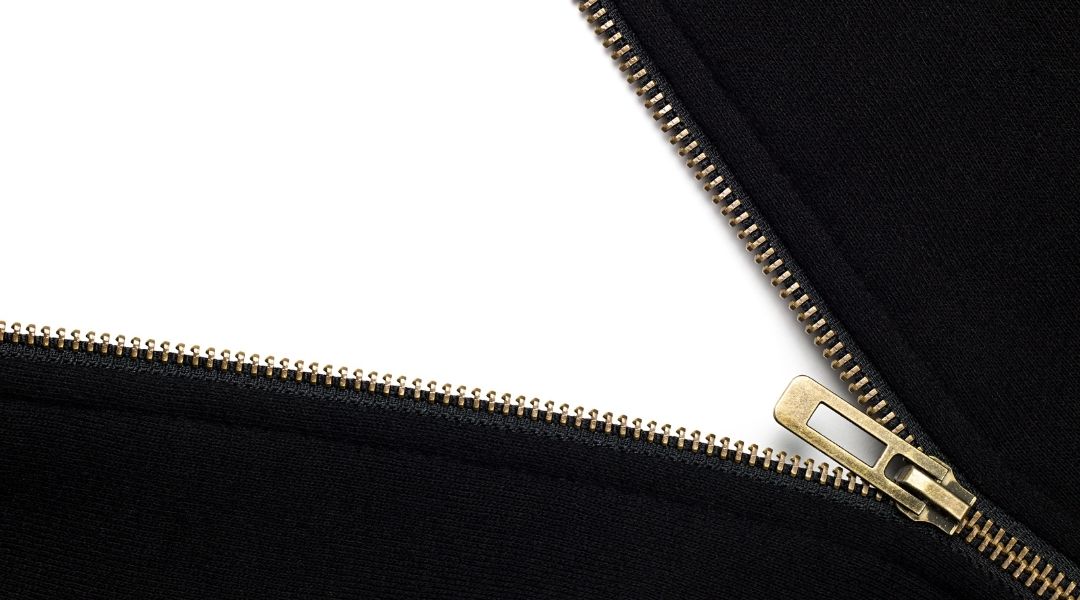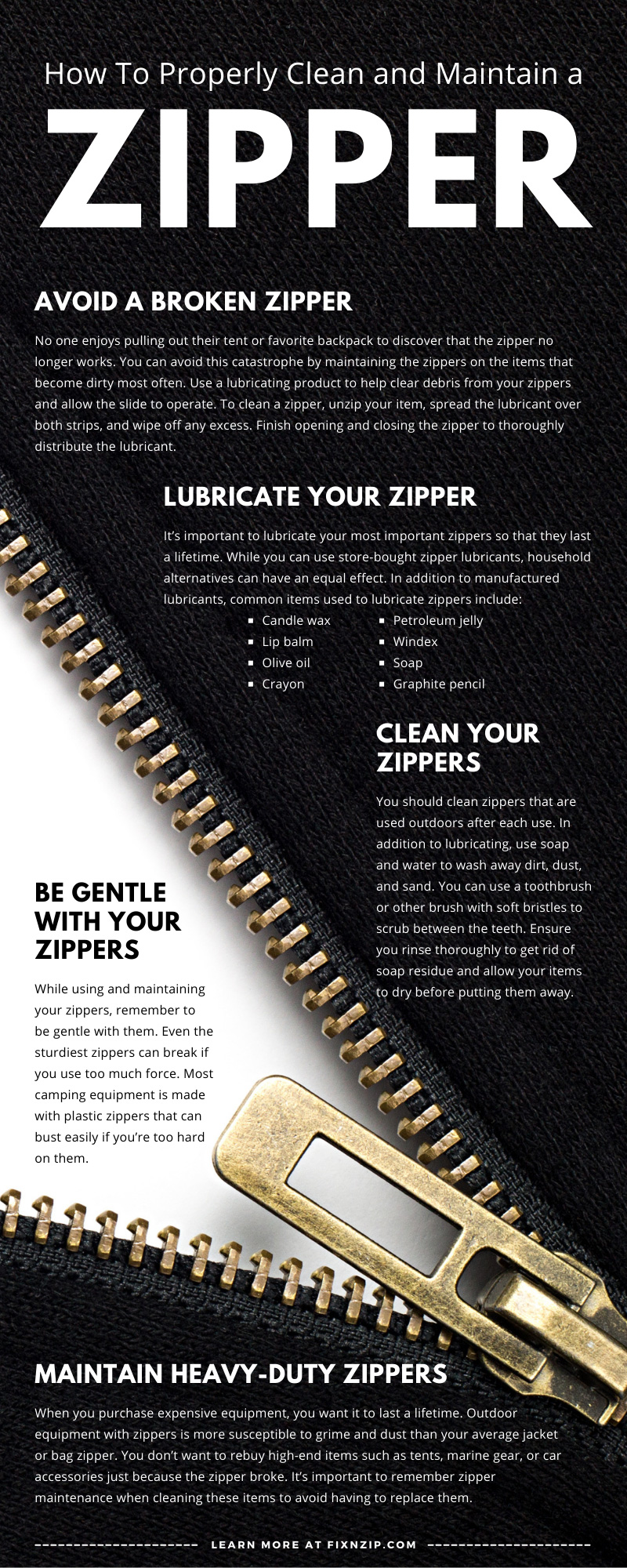
If you’re having bad luck with your zippers, you may need to take better care of them. Not all zippers are made the same, and some require more care than others, especially if they must withstand harsher elements. For instance, the zipper on your tent is likely to get dirtier in one night than the zipper on your purse. Knowing how to properly clean and maintain a zipper will allow you to keep your favorite—and most expensive—items around for a lifetime.
When your zipper breaks, it can ruin the entire point of an item you were trying to use. It’s important to maintain zippers to prolong the life of your favorite or most expensive items and equipment, such as tents, luggage, or marine gear. The more expensive your equipment is, the more likely it has a heavy-duty zipper that you don’t want to ruin. Zippers can degrade without proper care, which often results in high-end materials being thrown away.
To properly clean a zipper, you should know how they work. A zipper is comprised of two pieces of tape that are lined with rows of metal, nylon coil, or molded plastic teeth. This piece is known as the chain. Zippers also have a slide that allows the teeth to interlock and a tab to pull the slide. There’s an insertion pin that allows the slide to join the teeth. A zipper-stop is the piece that keeps the slide from falling off the chain, and you’ll find this at the end of the zipper. Depending on your item, your zipper may have one zipper-stop at the top or two at the top and bottom (one example of this would be the zipper on a tent.)
Your zipper can stop working for a myriad of reasons. The first thing most people want to know when their zipper stops working is how to fix it. Figuring out the reason why your zipper isn’t working can help you solve the problem.
The most common reason why zippers stop working is that the slide gets stuck. Your zipper slide can get stuck in the tape or attached fabric of whatever item it’s attached to, preventing the slide from moving across the chain. Try pulling the tab back until the fabric comes free. If the fabric becomes so stuck that threads are mixed up in the teeth, you may have to unwind each thread individually from the teeth and slide to get your zipper working again. Use scissors for the toughest knots.
Another reason your zipper may get stuck is that it’s not properly lubricated. The zippers of tents and other outdoor equipment easily get caked with dirt and dust and therefore should be cleaned and lubricated after each use to ensure long-term function. Furthermore, the zippers for marine gear, such as wetsuits, get sand stuck in them easily and should also be cleaned regularly.
Another common reason why zippers break is that the chain or teeth become corroded. Inspect your zipper to see if any teeth are missing or bent out of shape. You can use pliers to bend teeth back into the right position. Damaged zipper teeth may cause your zipper to separate even after you’ve used the slider to close it. Rust or oxidization can cause corrosion, especially to metal zipper materials.
If the slider comes off the track, your zipper is broken. Whether from too much tugging or general wear and tear, you can lose the slider or pull tab on your zipper. This is more common with metal zippers and small cheap zippers.
No one enjoys pulling out their tent or favorite backpack to discover that the zipper no longer works. You can avoid this catastrophe by maintaining the zippers on the items that become dirty most often. Use a lubricating product to help clear debris from your zippers and allow the slide to operate. To clean a zipper, unzip your item, spread the lubricant over both strips, and wipe off any excess. Finish opening and closing the zipper to thoroughly distribute the lubricant.
It’s important to lubricate your most important zippers so that they last a lifetime. While you can use store-bought zipper lubricants, household alternatives can have an equal effect. In addition to manufactured lubricants, common items used to lubricate zippers include:
You should clean zippers that are used outdoors after each use. In addition to lubricating, use soap and water to wash away dirt, dust, and sand. You can use a toothbrush or other brush with soft bristles to scrub between the teeth. Ensure you rinse thoroughly to get rid of soap residue and allow your items to dry before putting them away.
While using and maintaining your zippers, remember to be gentle with them. Even the sturdiest zippers can break if you use too much force. Most camping equipment is made with plastic zippers that can bust easily if you’re too hard on them.
When you purchase expensive equipment, you want it to last a lifetime. Outdoor equipment with zippers is more susceptible to grime and dust than your average jacket or bag zipper. You don’t want to rebuy high-end items such as tents, marine gear, or car accessories just because the zipper broke. It’s important to remember zipper maintenance when cleaning these items to avoid having to replace them.
Even with proper maintenance, accidents can happen, and things still break. Knowing how to properly clean and maintain a zipper is only helpful if you use the tips and tricks provided. Life often gets in the way of routine maintenance, and it’s easy to forget to clean your zippers. If you lose your zipper slider or simply can’t find a way to get your zipper unstuck, use a FixNZip zipper replacement kit to solve any broken zipper problems you come across. The FixNZip operates with a simple thumbscrew mechanism and fits on any size of zipper chain. Purchase one online today!

